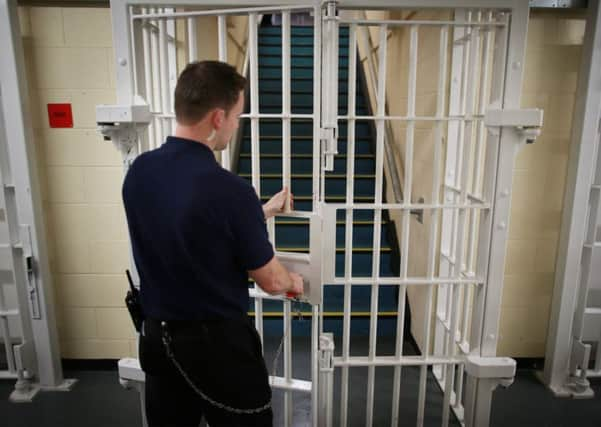Kenny MacAskill: Tackling social problems is best addressed in communities, not prisons


That’s to be welcomed. Recorded crime is at a 42-year low and violent crime has fallen significantly. Scotland is a safer place, yet the prison population has been increasing relentlessly. More are incarcerated here than in other comparable jurisdictions and despite some of our nation’s troubles, we’re not innately bad people. In-depth investigations from good and thoughtful people in the McLeish and Angiolini Reports have told us that.
This isn’t about offending, but how it is tackled and a lot isn’t about crime itself but the social problems that result in it. Tackling them is best addressed in communities, not jails.
Advertisement
Hide AdAdvertisement
Hide AdOf course, this objective is not without its challenges and caveats need to be added. Resourcing for alternative disposals is absolutely essential, as with support for mental health and addiction services in the community. Without that, confidence not just among the judiciary but among the public will falter.
Not only must Community Justice Scotland and other supporting organisations be properly funded, but other public agencies must meet their responsibilities. After all, many end up in jail as the default position when other social services have failed. From education, through housing and employment, to health, they’ve fallen by the wayside and prison sweeps them up. Those sectors and agencies need to address the issue at source, not leave it as a law enforcement concern.
Consideration, if not imposition, of a mandatory requirement may also be needed if there is to be routine flouting of it by those on the bench. Occasional overrides of the presumption on cause shown is acceptable, but a regular ignoring of the law’s intentions most certainly is not.
However, given the position of the Lord Justice Clerk and the outstanding work done in judicial training, that hopefully won’t be needed. No-one wants to interfere with the independence of the judiciary but the ethos of the legislation must be adhered to, by all who sit on the bench.
Of course, the Tories will fulminate and declare that prison works. Works in what way? It doesn’t reduce re-offending, as all the evidence shows that community disposals are more effective than short prison sentences. Moreover, many of those committing such offences have deep-rooted mental and physical needs that are better provided for in the community through a health centre or other social service than in a prison environment. It’s hardly coincidence that prisons have expanded as care facilities have contracted.
Finally, a short prison sentence can and most often does exacerbate the troubles already facing challenged and challenging individuals. The loss of their house, sometimes their employment, absence from family and friends and even such specifics as the loss of doctor or prescription compound an already fragile situation.
There’s a belief held by some that prison can solve all social afflictions. Somehow or other, sending someone there will allow all their needs – addiction, education, employment, health – to be addressed. Now I’m a huge admirer of the prison service and the work they do. But they’re not miracle workers. A prison is primarily built to keep people in, not to provide for every need or requirement. A prison can’t be a first-class hospital, college and training venue all rolled into one.
Great work is still done when there is time and space to work with individuals. That takes us back to first principles and who should be in prison. But incarceration should be for those who are a danger to our community and need to be segregated for our security, and for those who have committed an offence of such magnitude that no other punishment is appropriate.
Advertisement
Hide AdAdvertisement
Hide AdThat means concentrating on those who are the risk, not those who are a nuisance. Those who are in the ‘risk’ category need to be the priority for the prison staff. There are also a few who will need to be with prison staff for a very long time. It allows the prison service to concentrate resources on those that require to be there, and who they will have time to work with.
Prisons shouldn’t be short term respite for troubled individuals or an expensive punishment for those who aren’t a threat. It takes weeks to assess the requirements of those who have complex needs. When someone is serving a short sentence, the prison service has no sooner worked out their needs than they’re preparing them for release. Their needs are better dealt with in the community.
Prison is hugely expensive and isn’t cost-free. Building prisons comes at the price of not being able to provide new schools, homes or hospitals. When put that way, people will opt for the latter and not the former, as New Zealand discovered when a city once gave its citizens the option.
At around £30,000 per year, the cost of keeping someone in jail is significantly greater than the cost of a non-custodial disposal where the community can benefit from work done to atone, as well as reducing the likelihood of re-offending. Young men behaving badly under the influence of alcohol should pay back through community work, not be given lodgings at the taxpayers’ expense.
This isn’t a right-wing or left-wing policy, but a sensible, pragmatic and humane one. It’s why a right-of-centre government in the Netherlands has pursued it, saving money, closing prisons and making society safer.
It’s right for the offender and right for us all.